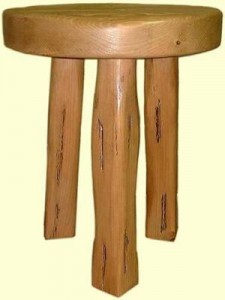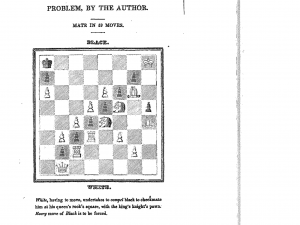
Lest anyone think I’m uniquely deranged for my criticisms of the Cambridge University Mathematics Tripos examination, particularly during the 18th- and 19th-centuries, here is GH Hardy – perhaps Britain’s greatest 20th century pure mathematician – speaking in his Presidential Address to the Mathematics Association in 1926:
My own contribution to the discussion consisted merely in an expression of my feeling that the best thing that could happen to English mathematics, and to Cambridge mathematics in particular, would be that the Mathematical Tripos should be abolished. I stated this on the spur of the moment, but it is my considered opinion, and I propose to defend it at length to-day. And I am particularly anxious that you should understand quite clearly that I mean exactly what I say; that by “abolished” I mean “abolished”, and not “reformed”; that if I were prepared to co-operate, as in fact I have co-operated in the past, in “reforming” the Tripos, it would be because I could see no chance of any more revolutionary change; and that my “reforms” would be directed deliberately towards destroying the traditions of the examination and so preparing the way for its extinction.” [p. 134]
. . .
“I suppose that it would be generally agreed that Cambridge mathematics, during the last hundred years, has been dominated by the Mathematical Tripos in a way in which no first-rate subject in any other first-rate university [page-break] has ever been dominated by an examination. It would be easy for me, were the fact disputed, to justify my assertion by a detailed account of the history of the Tripos, but this is unnecessary, since you can find an excellent account, written by a man who was very much more in sympathy with the Tripos than I am, in Mr. Rouse Ball’s History of Mathematics in Cambridge. I must, however, call your attention to certain rather melancholy reflections which the history of Cambridge mathematics suggests. You will understand that when I speak of mathematics I mean primarily pure mathematics, not that I think that anything which I say about pure mathematics is not to a great extent true of applied mathematics also, but merely because I do not want to criticise where my competence as a critic is doubtful.
Mathematics at Cambridge challenges criticism by the highest standards. England is a first-rate country, and there is no particular reason for supposing that the English have less natural talent for mathematics than any other race; and if there is any first-rate mathematics in England, it is in Cambridge that it may be expected to be found. We are therefore entitled to judge Cambridge mathematics by the standards that would be appropriate in Paris or Gottingen or Berlin. If we apply these standards, what are the results? I will state them, not perhaps exactly as they would have occurred to me spontaneously – though the verdict is one which, in its essentials, I find myself unable to dispute – but as they were stated to me by an outspoken foreign friend.
In the first place, about Newton there is no question; it is granted that he stands with Archimedes or with Gauss. Since Newton, England has produced no mathematician of the very highest rank. There have been English mathematicians, for example Cayley, who stood well in the front rank of the mathematicians of their time, but their number has been quite extraordinarily small; where France or Germany produces twenty or thirty, England produces two or three. There has been no country, of first-rate status and high intellectual tradition, whose standard has been so low; and no first-rate subject, except music, in which England has occupied so consistently humiliating a position. And what have been the peculiar characteristics of such English mathematics as there has been? Occasional flashes of insight, isolated achievements sufficient to show that the ability is really there, but, for the most part, amateurism, ignorance, incompetence, and triviality. It is indeed a rather cruel judgment, but it is one which any competent critic, surveying the evidence dispassionately, will find it uncommonly difficult to dispute.
I hope that you will understand that I do not necessarily endorse my friend’s judgment in every particular. He was a mathematician whose competence nobody could question, and whom nobody could accuse of any prejudice against England, Englishmen, or English mathematicians; but he was also, of course, a man developing a thesis, and he may have exaggerated a little in the enthusiasm of the moment or from curiosity to see how I should reply. Let us assume that it is an exaggerated judgment, or one rhetorically expressed. It is, at any rate, not a ridiculous judgment, and it is serious enough that such a condemnation, from any competent critic, should not be ridiculous. It is inevitable that we should ask whether, if such a judgment can really embody any sort of approximation to the truth, some share of the responsibility must not be laid on the Mathematical Tripos and the grip which it has admittedly exerted on English mathematics.
I am anxious not to fall into exaggeration in my turn and use extravagant language about the damage which the Tripos may have done, and it would no doubt be an extravagance to suggest that the most ruthless of examinations could destroy a whole side of the intellectual life of a nation. On the [page-break] other hand it is really rather difficult to exaggerate the hold which the Tripos has exercised on Cambridge mathematical life, and the most cursory survey of the history of Cambridge mathematics makes one thing quite clear; the reputation of the Tripos, and the reputation of Cambridge mathematics stand in correlation with one another, and the correlation is large and negative. As one has developed, so has the other declined. As, through the early and middle nineteenth century, the traditions of the Tripos strengthened, and its importance in the eyes of the public grew greater and greater, so did the external reputation of Cambridge as a centre of mathematical learning steadily decay. When, in the years perhaps between 1880 and 1890, the Tripos stood, in difficulty, complexity, and notoriety, at the zenith of its reputation, English mathematics was somewhere near its lowest ebb. If, during the last forty years, there has been an obvious revival, the fortunes of the Tripos have experienced an equally obvious decline.” [pp. 135-137]
. . .
“It has often been said that Tripos mathematics was a collection of elaborate futilities, and the accusation is broadly true. My own opinion is that this is the inevitable result, in a mathematical examination, of high standards and traditions. The examiner is not allowed to content himself with testing the competence and the knowledge of the candidates; his instructions are to provide a test of more than that, of initiative, imagination, and even of some sort of originality. And as there is only one test of originality in mathematics, namely the accomplishment of original work, and as it is useless to ask a youth of twenty-two to perform original research under examination conditions, the examination necessarily degenerates into a kind of game, and instruction for it into initiation into a series of stunts and tricks. It was in any case certainly true, at the time of which I am speaking, that an undergraduate might study mathematics diligently throughout the whole of his career, and attain the very highest honours in the examination, without having acquired, and indeed without having encountered, any knowledge at all of any of the ideas which dominate modern mathematical thought. His ignorance of analysis would have been practically complete. About geometry I speak with less confidence, but I am sure that such knowledge as he possessed would have been exceedingly one-sided, and that there would have been whole fields of geometrical knowledge, and those perhaps the most fruitful and fascinating of all, of which he would have known absolutely nothing. A mathematical physicist, I may be told, would on the contrary have received an appropriate and an excellent education. It is possible; it would no doubt be very impertinent for me to deny it. Yet I do remember Mr. Bertrand Russell telling me that he studied electricity at Trinity for three years, and that at the end of them he had never heard of Maxwell’s equations; and I have also been told by friends whom I believe to be competent that Maxwell’s equations are really rather important in physics. And when I think of this I begin to wonder whether the teaching of applied mathematics was really quite so perfect as I have sometimes been led to suppose.” [p. 138]
. . .
“I shall judge the Tripos by its real or apparent influence on English mathematics. I have already told you that in my judgment this influence has in the past been bad, that the Tripos has done negligible good and by no means negligible harm, and that, so far from being the great glory of Cambridge mathematics, it has gone a very long way towards strangling its development.” [p. 141]
Reference:
G. H. Hardy [1926/1948]: Presidential Address: The Case against the Mathematical Tripos. The Mathematical Gazette, 32 (300): 134-145 (July 1948).

